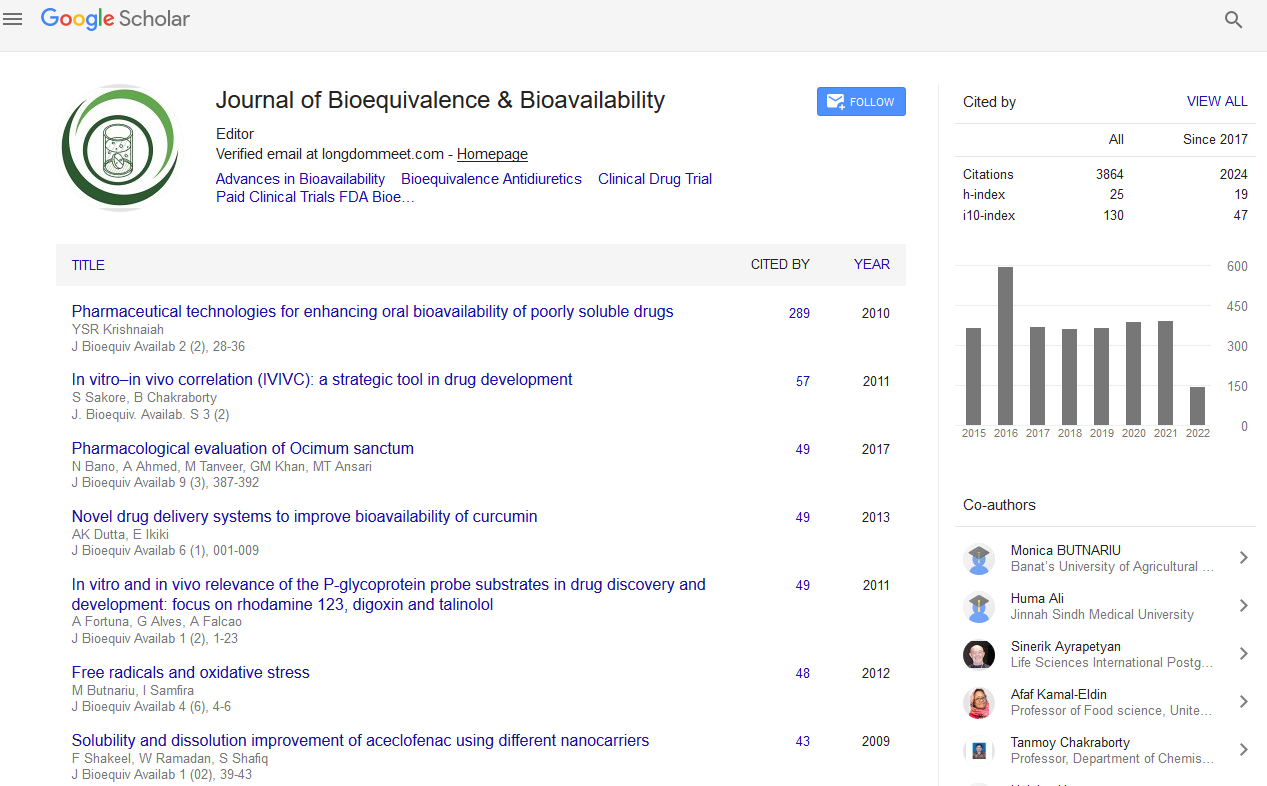PMC/PubMed Indexed Articles
Indexed In
- Academic Journals Database
- Open J Gate
- Genamics JournalSeek
- Academic Keys
- JournalTOCs
- China National Knowledge Infrastructure (CNKI)
- CiteFactor
- Scimago
- Ulrich's Periodicals Directory
- Electronic Journals Library
- RefSeek
- Hamdard University
- EBSCO A-Z
- OCLC- WorldCat
- SWB online catalog
- Virtual Library of Biology (vifabio)
- Publons
- MIAR
- University Grants Commission
- Geneva Foundation for Medical Education and Research
- Euro Pub
- Google Scholar
Useful Links
Share This Page
Journal Flyer

Open Access Journals
- Agri and Aquaculture
- Biochemistry
- Bioinformatics & Systems Biology
- Business & Management
- Chemistry
- Clinical Sciences
- Engineering
- Food & Nutrition
- General Science
- Genetics & Molecular Biology
- Immunology & Microbiology
- Medical Sciences
- Neuroscience & Psychology
- Nursing & Health Care
- Pharmaceutical Sciences
Abstract
Investigation of Intestinal Absorption Enhancers: Individual vs. Blends with the Carbamoylphosphonate JS403
Reut Bitton, Marina Tsuriel, R Rama Suresh, Eli Breuer, Reuven Reich and Amnon Hoffman
JS403 is a carbamoylphosphonate (CPO) molecule that showed anti-metastatic properties in mice. Since JS403 is intended to be a chronic prophylactic drug, the preferred route of administration should be oral. However, it exhibits poor oral bioavailability of less than 1%. The poor intestinal permeability and high solubility implies its classification as BCS class III drug. The aim of this study was to overcome the limited intestinal permeation of JS403 that is regarded as an unmet need in the pharmaceutical industry for this class of drugs. Therefore, the impact of acceptable absorption enhancers on the intestinal permeability of JS403 were examined using established experimental models. The absorption enhancers were: I) sodium caprate (C10), II) sodium deoxycholate (SDC) and III) mono-carboxymethylated chitosan (MCC). The effect of each enhancer was examined alone and also in combinations. In-vitro permeability through enterocytes monolayer was studied using the Caco-2 model, while the oral bioavailability was determined by using the freely moving rat model. The results of this investigation showed that while the use of a single absorption enhancer had no effect on JS403 permeability, the combination of C10 and sodium deoxycholate increased the permeability of JS403 by 10-fold in the in-vitro model. In addition, this blend showed a 2-fold elevation in JS403 oral bioavailability. Both in-vitro and in-vivo results highlight the synergistic potential of the combined enhancers C10 and sodium deoxycholate in enhancing oral bioavailability of BCS class III medications.


